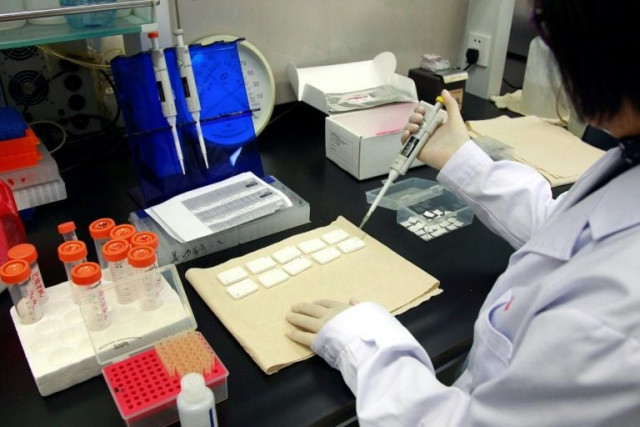Chinese hospital denies approving gene-edited babies experiment
Over 100 scientists in China issue joint statement calling for better legislation against genetically-edited babies

A group of 122 Chinese scientists have signed a joint statement condemning the experiment as 'crazy'. PHOTO AFP
Shenzhen Harmonicare Women and Children's Hospital said in a statement that it suspected the signature on a document approving the experiment, specifically its adherence to ethical standards, was falsified.
It has also asked the police to investigate.
"We have always firmly opposed the development of genetic experiments that violate human ethics and morality," the hospital said on its website.
The experiment, which was led by Chinese professor He Jiankui, altered the DNA of twin girls born a few weeks ago to prevent them from contracting HIV and has prompted a heated debate among the scientific community.
China shows off automated doctors, teachers at Robot conference
Some warned that exposing healthy embryos and children to gene editing was irresponsible, while others denounced He's experiment as premature and dangerous.
Chinese scientists and institutions have also criticised the experiment, with 100 scientists in China issuing a joint statement calling for better state legislation.
"It is a great blow to the global reputation and development of biomedical research in China," said the statement posted on the Twitter-like platform Weibo.
The university where He works has also distanced itself from the scientist's experiment.
China discovers 54 new plant species for traditional Chinese medicine: report
"This research work was carried out by Professor He Jiankui outside of the school," the Southern University of Science and Technology said in a statement Monday.
He has been on unpaid leave since February and his research is a "serious violation of academic ethics and norms", it said.
The Shenzhen Harmonicare Women and Children's Hospital too has denied any involvement with He.
In interviews with Chinese media, Cheng Zhen, the general manager of the hospital, said the hospital had not partnered with He, and that he had never even met the man before.



















COMMENTS
Comments are moderated and generally will be posted if they are on-topic and not abusive.
For more information, please see our Comments FAQ